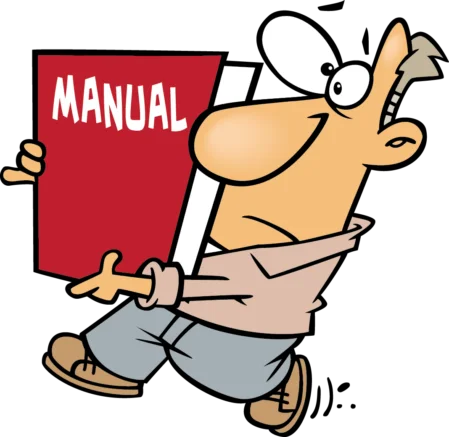Banking Terms
Bank Reconciliations

Believe it or not, I've actually run across so called bookkeepers that could not prepare a bank reconciliation. Of course often the owner was not even aware that they weren't being done. Hopefully if you're a bookkeeper, manager, or owner this doesn't apply to you or you're taking this course to remedy the situation.
This task is not really difficult and really only requires applying some organization, logic, and common sense. Can you get by without doing them ? You probably could, but I sure don't recommend it ! Cash is a critical business asset and should be managed as such. Performing monthly bank reconciliations is just one of the tasks of properly managing cash.
What Is A Bank Reconciliation ?
A Bank Reconciliation is just a record that is normally prepared each month after you receive your bank statement from the bank for the month. The record compares what you recorded in your cash records with what was recorded by the bank in your bank statement and provides proof as to the accuracy of your cash balance.
Why Is A Bank Reconciliation Important ?
Bank reconciliations help to identify discrepancies before they become problems. Periodic bank reconciliations also help to catch fraud and cash manipulations quickly to minimize damage to the company.
Why is the Balance Per Bank Statement and Balance Per Checkbook Different ?
Timing is the answer. Some transactions recorded in the checkbook have not yet been processed by the bank and some transactions processed by the bank have not yet been recorded in the checkbook.
What's The Terminology I need To Be Familiar With ?
- "As Of" Date is the date you pick to reconcile your bank balance with your check book balance.
- Cutoff Date is the date that the bank determines and uses to prepare your bank statement as of a specified date. All your banking transactions (deposits, checks, and other adjustments) that the bank has processed that have occurred prior to and including this date are included in your current monthly bank statement. All transactions that occur after this date are included in your next month's bank statement.
- Checkbook is a record that is used to keep up with the balance in your bank account and in which you record all your deposits, payments, and deductions that either increase or decrease your bank balance.
- Bank Draft is a document that authorizes a deduction to be made from your checking account. A common example would be a draft that is taken out of your bank account each month for insurance.
- Check is a document used to transfer funds from one business or individual to another business or individual. The check is made payable to the payee (individual or business receiving the funds) and is signed by the payer (individual or business paying the funds). The check is "drawn on" a bank or financial institution where the payer maintains their checking account and the funds are transferred from.
- Deposit Slip is a document used to summarize and record checks and cash received that are deposited in the bank.
- Deposit Book is a record that contains the blank and completed deposit slips used for preparing the individual daily deposit slips. Usually the slips are treated so that a "carbon" copy is provided. The original is used for making the deposit in the bank.
- Bank Fees are fees that a bank charges for providing various services to their customers. A common example of a bank fee is the monthly statement charge.
- Credit Card Fees are the fees that a business encounters in order to provide the capability for their customers to use their credit cards when making a purchase. The credit card service provider charges various fees to the merchant such as a monthly statement fee, processing fee for each transaction, and usually a percentage amount for each transaction processed.
- Direct Deposits are deposits that are sent to and directly deposited in your bank. The bank usually sends a notice to their customers to alert them that the deposit has been made on their behalf. A common example that many businesses should be familiar with is the daily transmittal (deposit) of all their customer's credit card sales processed by their credit card provider.
- Outstanding Checks are simply checks written by a business or individual that have not yet been processed and cleared by the bank. In other words, they are checks written that have not yet gotten to the bank.
- Deposits In Transit are deposits made by a business or individual that have not yet been credited to your account by the bank. Usually, this results from making a deposit for a day late in the afternoon or evening. When referred to when preparing a bank reconciliation, the Deposits In Transit are the deposits that have been recorded in the business's records but have not yet been recorded in the bank's records.
- NSF is an abbreviation for Non Sufficient Funds. This occurs when a check you receive and deposit in your bank account is later returned to you because the check was "no good". In other words, your customer or whoever wrote the check did not have enough money in their bank account to cover the amount that the check was written for.
What's next ?
Needed Records

